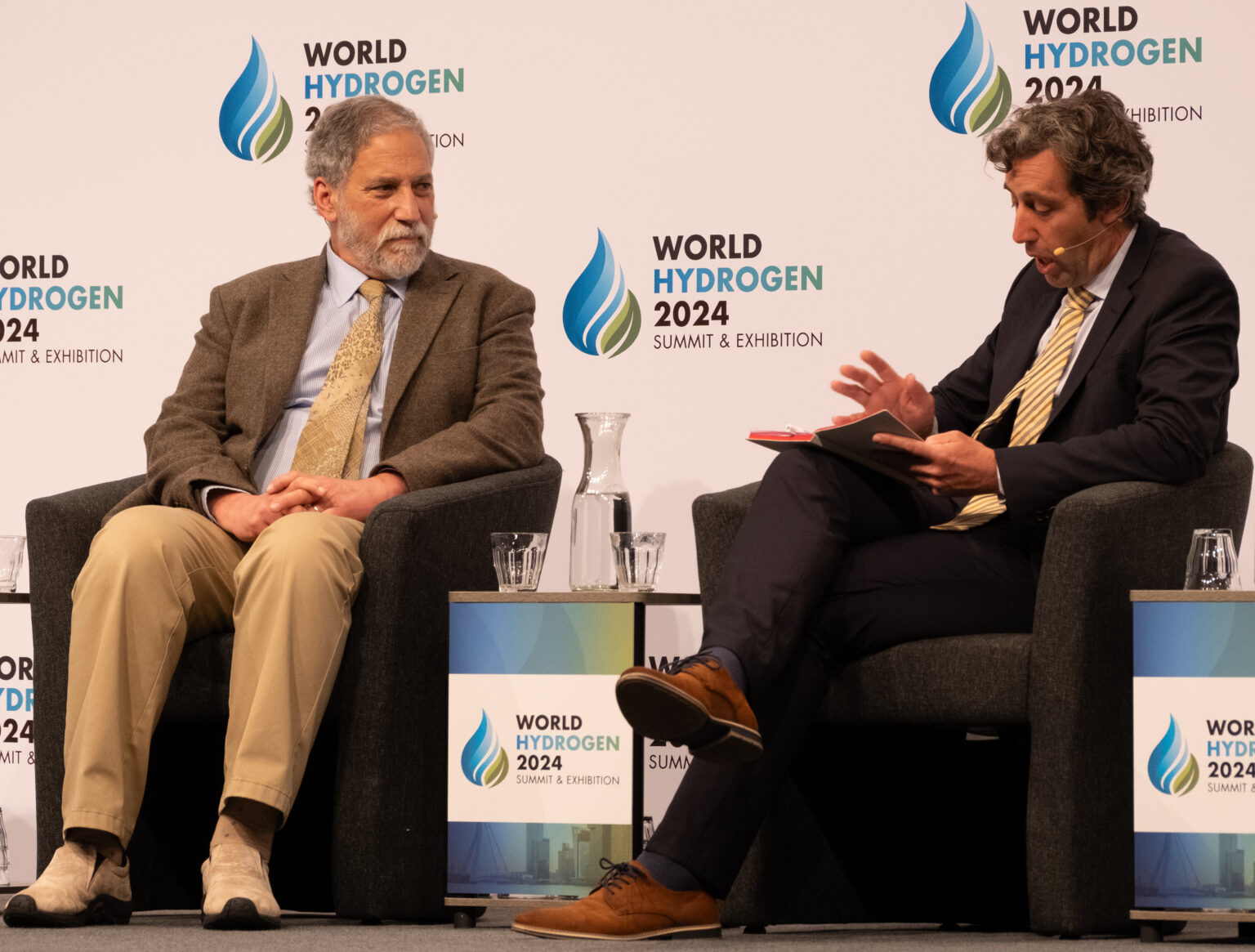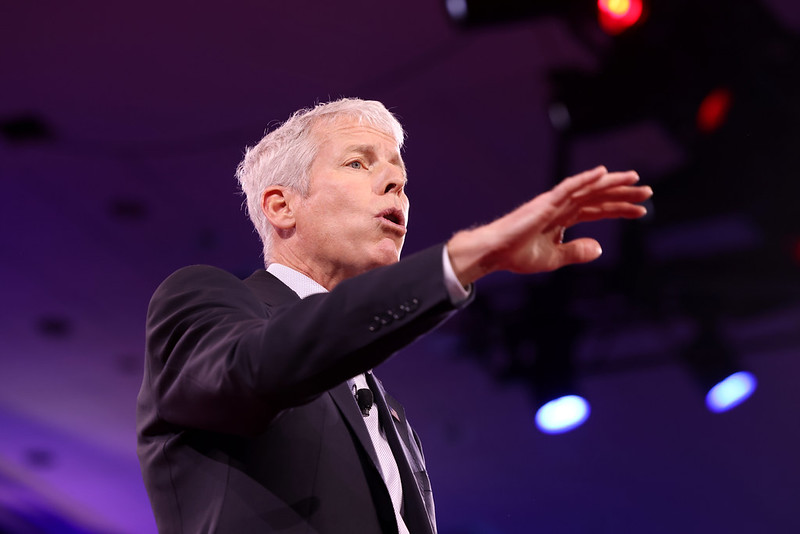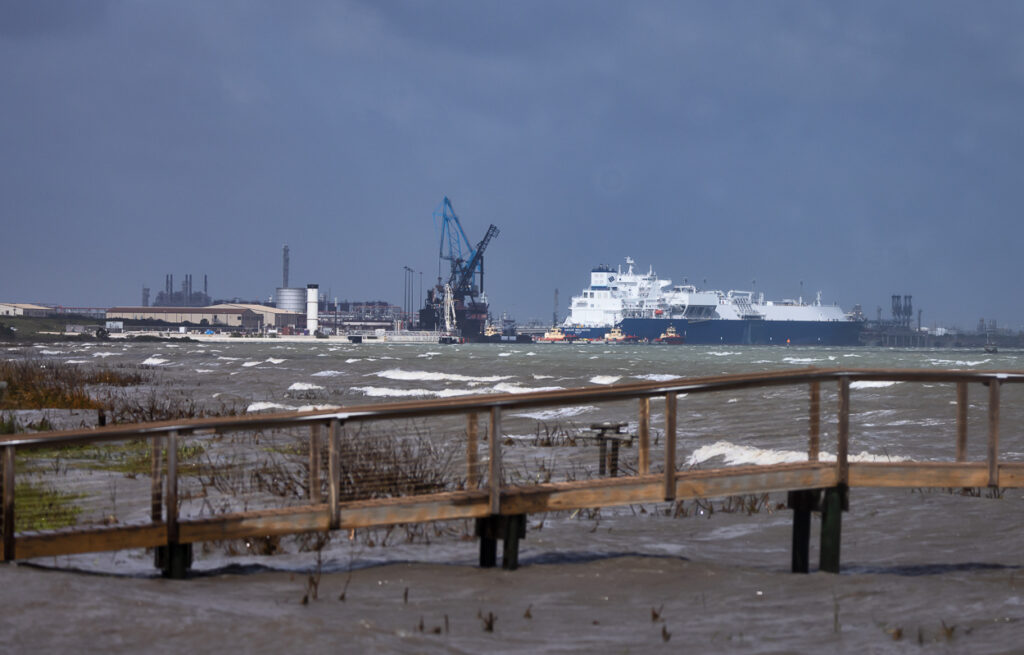ExxonMobil Corp. and other fossil fuel companies are urging the European Union to relax targets to boost climate-friendly “green” hydrogen, hoping to win greater support for projects to manufacture the fuel using natural gas.
The United States-based oil major’s willingness to publicly throw down the gauntlet to policy-makers underscores the stakes for the fossil fuel industry as the EU fleshes out its plans to slash carbon emissions, ahead of June’s European parliament elections.
“You need to remove policy hurdles such as in the Renewable Energy Directive, so that you can faster scale the hydrogen economy in Europe, and use that to build out the infrastructure”, Simon Herbert, ExxonMobil’s vice-president of low carbon solutions, told the World Hydrogen 2024 conference in Rotterdam last week.
“It’s a question of allowing the market to work to allow every technology to develop”, Herbert said during a panel discussion at the three-day gathering, which drew some 12,000 delegates.
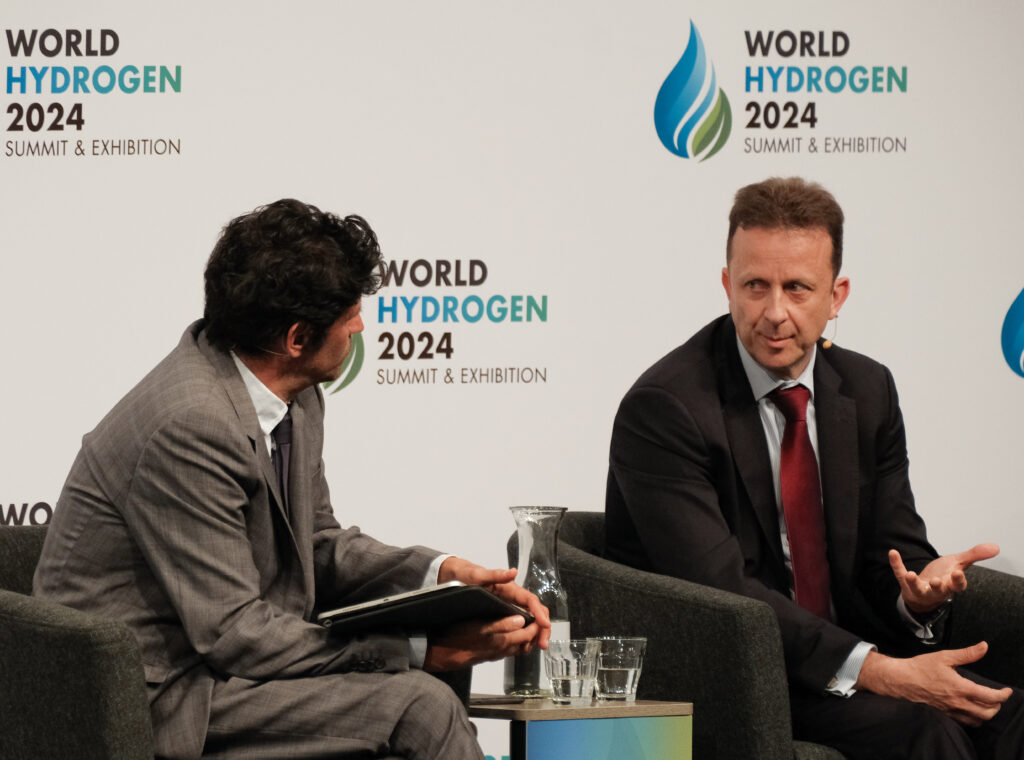
Climate advocates and fossil fuel industry lobbyists have been vying to influence EU negotiations over exactly which hydrogen production processes should be considered “low-carbon,” a decision that has the potential to affect dozens of planned projects.
Currently, more than 99 percent of hydrogen used in the EU is “grey hydrogen” made from natural gas in a process known as “steam methane reformation” that has high carbon dioxide (CO2) emissions.
In a recent directive, the EU set a target for so-called “renewable” or “green” hydrogen to make up 42 percent of total hydrogen consumption by 2030, and 60 percent by 2035.
The target builds on a pre-existing goal of producing or importing 20 million tonnes of green hydrogen by 2030. It was established as part of the RePower EU strategy, which was adopted in the wake of Russia’s February 2022 invasion of Ukraine to help wean the continent off Russian gas.
Over the next six years, the EU aims to increase annual imports of “green” hydrogen — which is made via a carbon-free water electrolysis process powered by wind or solar power — to 10 million tonnes, from nations such as Morocco and Chile, as well as increasing the bloc’s yearly production of green hydrogen from almost zero today to 10 million tonnes. Spanish and Portuguese energy companies are beginning to shift into green hydrogen production.
But the oil and gas industry is pushing hard for increased use of “blue” hydrogen. Like grey hydrogen, blue hydrogen is produced from natural gas, with a portion of the ensuing CO2 emissions sequestered underground using carbon capture and storage (CCS) technology.
Though industry presents blue hydrogen as a viable “low-carbon” climate solution, a litany of technical, environmental, and economic challenges continue to plague CCS projects around the world.
One of the few existing commercial blue hydrogen operations today, Shell’s Quest project in Canada, has fallen under intense scrutiny for capturing less than 50 percent of its carbon emissions. Global Witness concluded using public data that despite capturing five million tonnes of CO2 from 2015 to 2021, Quest released a further 7.5 million tonnes of greenhouse gases during the same period.
‘Cold, Hard Reality’
Climate advocates contend that oil and gas companies back blue hydrogen primarily because the process would help maintain demand for their existing gas assets, while green hydrogen represents a break with fossil fuel-based business as usual.
Only relatively small volumes of blue hydrogen are currently being produced, and challenging economics mean that many companies have yet to begin building projects anywhere in the world, whether blue or green.
“Europe is looking to pursue an industrial competitiveness and a climate-neutral economy, but the cold hard reality is that the whole energy transition has to be economic”, said Exxon’s Herbert at the Rotterdam conference. “At the moment you can’t yet get to full cost effectiveness in green, or scale at this point in time. But low-carbon hydrogen, such as blue hydrogen, can offer that scale economically now”.
Herbert said that including blue hydrogen in the definition of “low-carbon” would help establish a hydrogen market and “get emissions reductions moving forward.” He said that a “policy bias towards greening slowing the enablement of the hydrogen economy” was a risk.
DeSmog reported in June 2023 that only 10 percent of 147 hydrogen projects under consideration by the European Commission were explicitly committed to producing green hydrogen. More than half of the projects were blue hydrogen, and the rest either had not ruled out using blue hydrogen, or had no credible plans to use green.
Lobbying Battle
In June 2023, the European Commission added two supplementary rules – known as “Delegated Acts” – to more clearly define what constitutes “renewable” hydrogen. EU Energy Commissioner Kadri Simson has since stated that she intends to present more developed definitions before her mandate ends this autumn.
The European Commission is due to enshrine a final definition of low-carbon hydrogen by the end of 2024.
Environmental groups, joined by wind and solar energy producers, have called for the commission to adopt a “robust definition” for low-carbon hydrogen, with stringent conditions for blue hydrogen production.
Meanwhile, industry lobbyists have been pressing the European Commission to classify blue hydrogen as a “low-carbon” fuel.
“There has been a bit of difficulty because there are so many positive incentives and support for green hydrogen, but not as much for low-carbon [blue] hydrogen”, said Nikunj Gupta, vice-president of new energies at ADNOC, Abu Dhabi’s state oil company, at the hydrogen summit. ADNOC is a major supplier of oil and gas to Europe.
“We’ve been anxiously waiting for Europe to define what low-carbon hydrogen is and then enact measures to support that”, Gupta told the conference.
In a keynote address, Felipe Arbelaez, senior vice-president of hydrogen and CCS at BP, said that “the world desperately needs low-carbon hydrogen” to transition to a more secure, versatile, and lower carbon energy system, while cutting emissions in hard-to-electrify industrial sectors like cement, steel, and chemicals.
Though BP plans on eventually producing both green and blue hydrogen, Arbelaez said, in the near term the company will concentrate mainly on blue. “We’re aiming to produce about half a million tonnes of low-carbon hydrogen a year by the end of this decade”, he said.
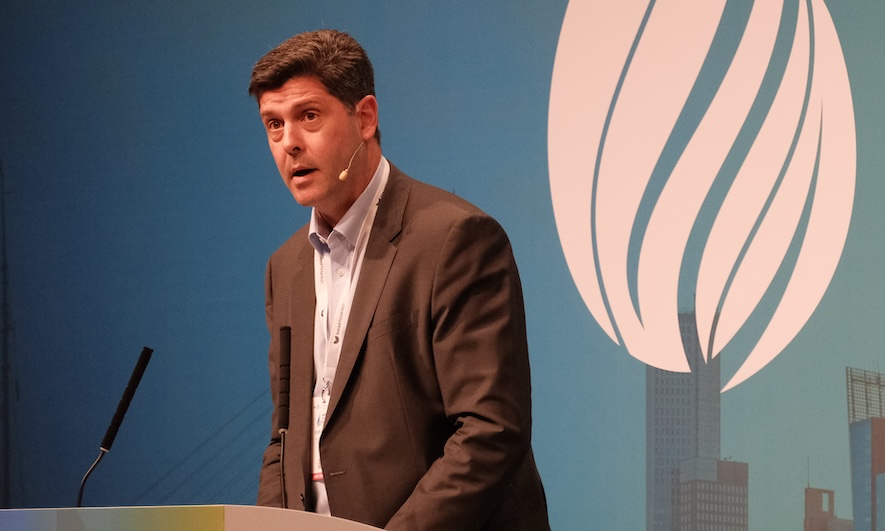
Arbelaez said BP is looking at developing an adjacent blue hydrogen project to its proposed 700-megawatt gas-powered power station at the UK’s Teesside carbon capture hub.
“With one blue project, you could produce the same amount of hydrogen as a number of green projects”, Arbelaez said. “The reality is it’s now more expensive to produce green hydrogen than grey hydrogen or the alternatives to the fossil fuel you are substituting”.
Scientific Doubts
Steve Hamburg, chief scientist at Environmental Defense Fund and the only representative of a nongovernmental organisation to speak at the conference, warned the delegates that it is difficult to assess whether hydrogen may contribute substantially to decarbonisation.
“We’ve heard a lot about the economics, but we haven’t heard so much about emissions”, Hamburg said during a 15-minute “fireside chat” with the European Commission’s Ruud Kempener.
While hydrogen on its own does not trap heat, it can interact with other substances in the atmosphere to prolong the lifetime of methane, a powerful greenhouse gas. It could also contribute to increases in ground-level ozone pollution — which is harmful to human health.
Hamburg said that a lack of technology to monitor the amount of hydrogen leaking from existing industry sites makes it difficult to assess how much future hydrogen projects might contribute to tackling climate change.
“If we don’t have that information, we can significantly undercut the decarbonization potential of deploying hydrogen”, Hamburg warned.
Combined with methane emissions associated with the gas used to make blue hydrogen, “we may actually increase warming over a couple decades,” Hamburg said. “There are enough issues here that we have a high probability of under-delivering on the promise of hydrogen”.
Subscribe to our newsletter
Stay up to date with DeSmog news and alerts


